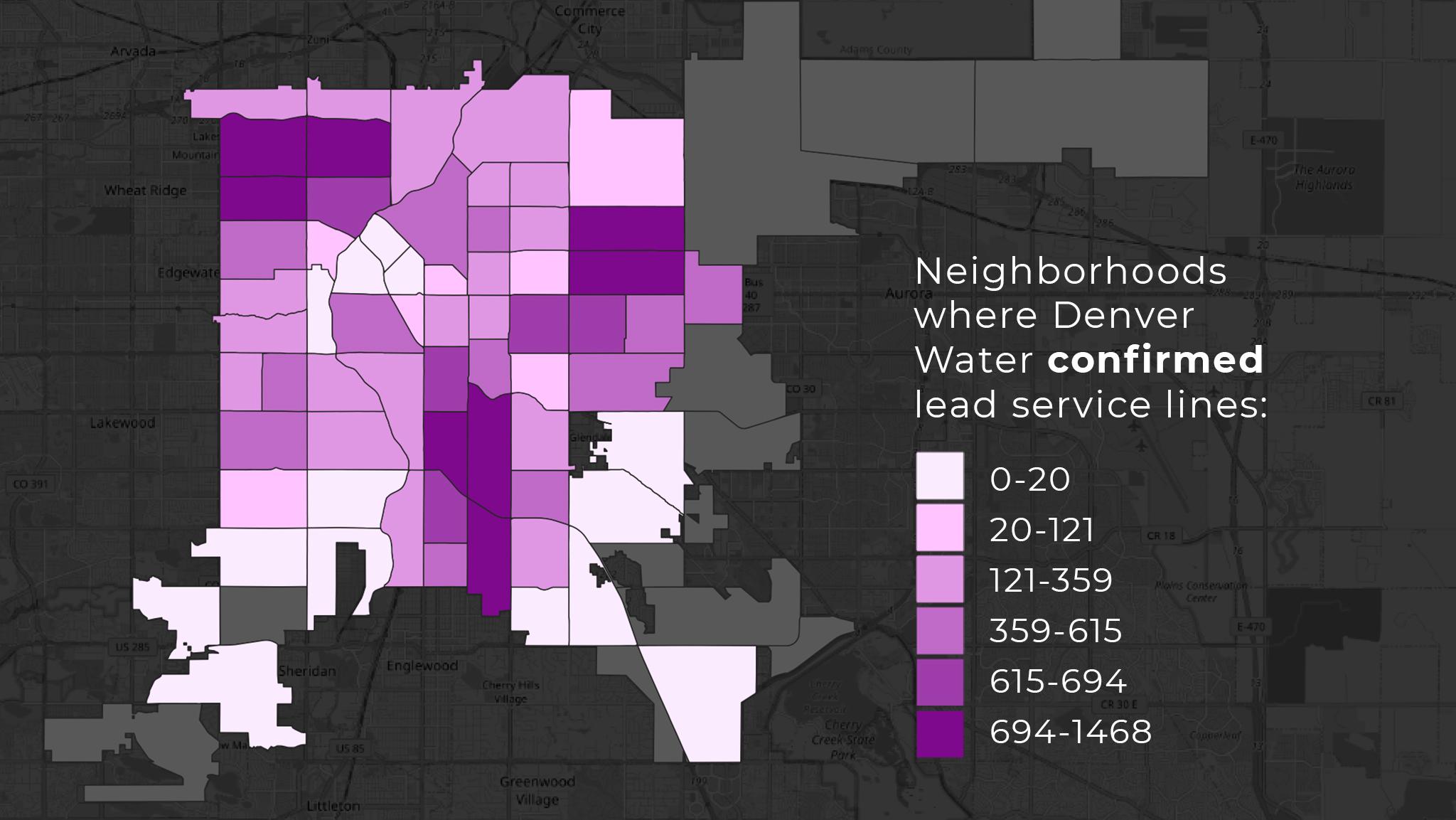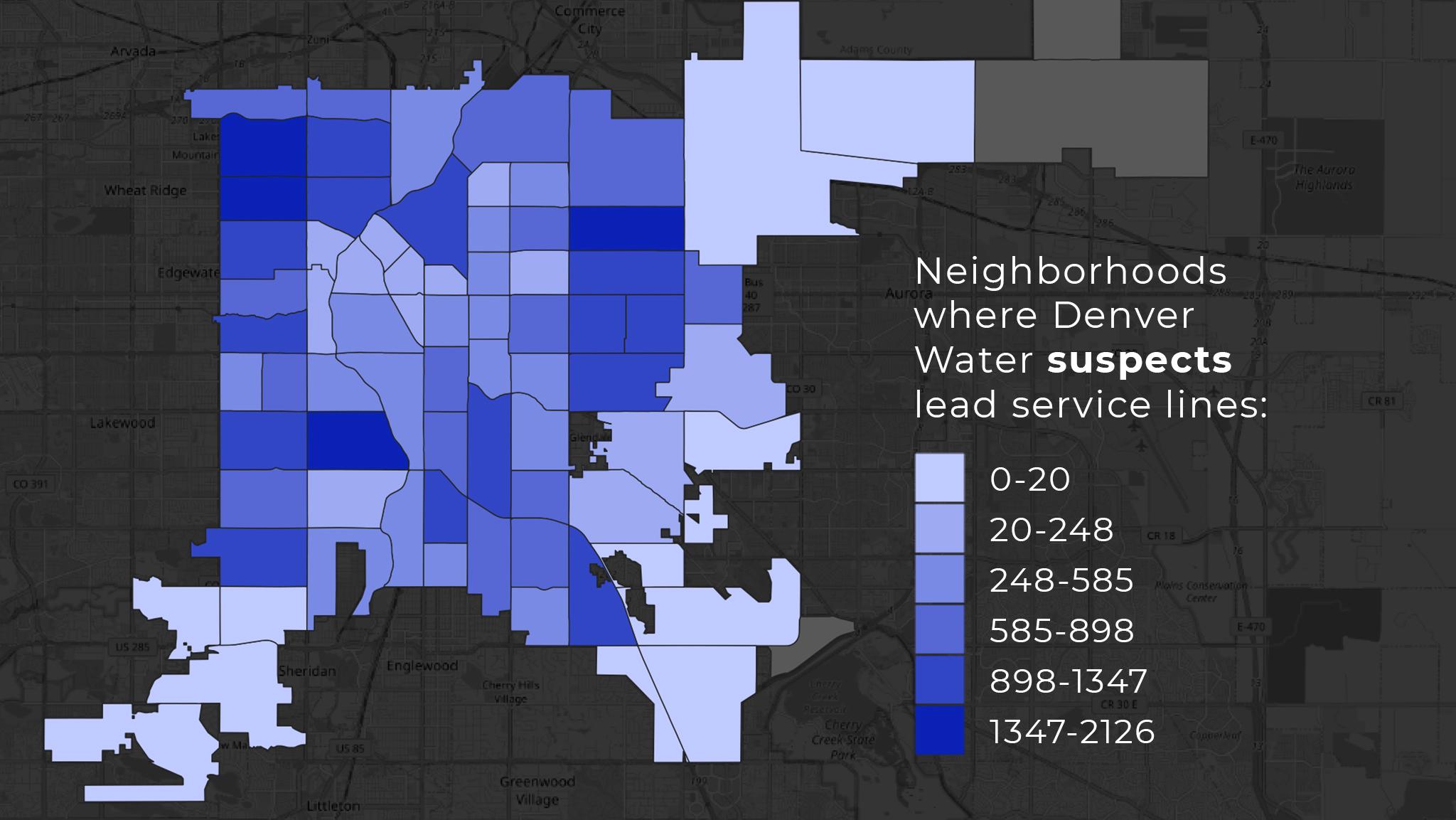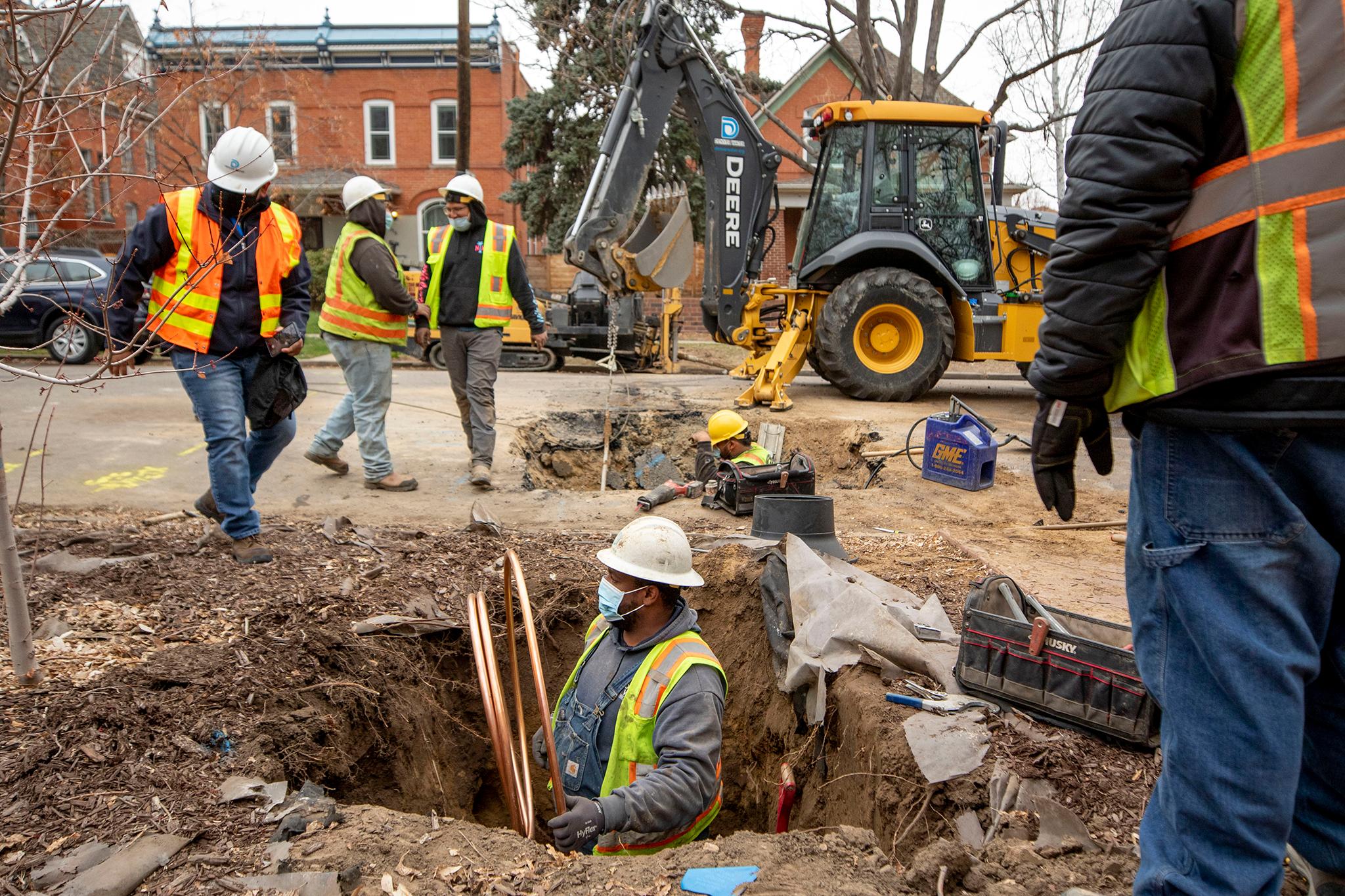Denver will get $76 million in federal funds to help the city remove lead pipes, after the EPA approved the city's $700 million plan Thursday. Here's what that means for residents.
First, check and see if your residence has a lead water line.
Testing showed high levels of lead in Denver water a decade ago. Levels have since gone below federal limits, and water gets tested regularly. As part of the removal project, Denver Water has been adjusting pH levels in water to reduce the risk of lead. It has also been in touch with affected residents and will give out free water filters until six months after lead pipes are replaced with copper lines.
"It is critical that [residents] continue to use filters certified to remove lead for drinking, cooking and infant formula, until they are no longer in the program," said Denver Water spokesperson Travis Thompson.
You can put your address into Denver Water's map to see if you live somewhere affected by the pipes. Denver Water sets year plans for work areas in the fall, prioritizing those most at-risk from lead poisoning, including infants and children.
According to a Denver Water spokesman, the city had an estimated 64,000 to 84,000 lead pipes at the start of the project. It's removed 15,000 so far, or somewhere between around 18 to 23 percent.
If you're worried about your water, you can also request a free water quality test from the state.


What's dangerous about lead?
Lead pipes can cause lead poisoning and brain damage, and are particularly harmful to children. Congress banned them in 1986. But removing ones already in place has been more challenging, leading to water crises in places like Flint, Michigan.
For many communities, issues like lead pipes are not just a health issue, but an environmental justice and racial justice issue.
"Water contaminated by lead is a significant health concern, especially for our disproportionately impacted communities that most often are also People of Color," said Sondra Young, President of NAACP Denver, in an EPA press release Thursday.
How does the EPA's approval change things?
Denver began a pilot program removing harmful pipes in 2020, projecting to finish in 15 years, a fast pace for a project of this size. The $76 million in federal funds, from the Bipartisan Infrastructure Act, will allow the city to finish removing lead pipes 1.5 years ahead of schedule.
The federal funds will also save residents money. The money for the $700 million project comes from a wide range of sources, including bonds, cash reserves and customer water rates. Federal funding will save customers around $235 per person, with the potential for more depending on where residents live and how much water they use.














